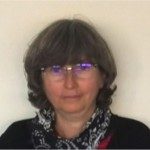Présentation
We recently uncovered a potentially interesting connection between ISGylation and cell cycle regulation. We reported that the degradation of USP18, major negative regulator of IFN-I signaling, involves SKP2, a well known actor in cell cycle regulation. SKP2 is the substrate-recognition subunit of the ubiquitin E3 ligase SCFSKP2 complex which destroys key inhibitors of S phase entry. The level of SKP2 is finely regulated, as it is high at the G1/S transition allowing progression into mitosis, and low in late mitosis/early G1, when it is ubiquitinated and degraded via the APC/Ccdh1 E3 ligase. Thus, stability is a major determinant of the oscillative expression of SKP2. Elevated SKP2 protein levels are found in a variety of cancers. We have recently found that SKP2 can be ISGylated and hence stabilized. Our objective is to better understand the interplay between IFN-I, ISG15 and SKP2 function in cell cycle choices. Our working hypothesis is that IFN-I, via ISGylation, may restrain SKP2 action toward cell cycle progression. De-ISGylation of SKP2 by USP18 may in turn release such block. This would represent a new layer of reversible control of cell cycle choice by a cytokine, IFN-I, known to exert complex homeostatic functions in immune and non-immune cells.
